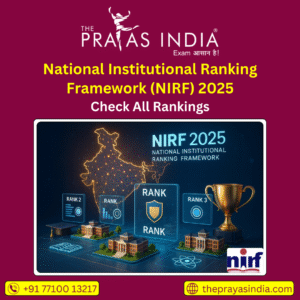Organization of the Petroleum Exporting Countries (OPEC): Formation, Members, Objectives, and Global Significance
Relevant for UPSC Prelims GS Paper 2 (International Relations–Energy Security, Groupings) and GS Paper 3 (Indian Economy–Energy Sector and Economic Development).
Introduction
The Organization of the Petroleum Exporting Countries (OPEC) is a permanent intergovernmental organization consisting of major oil-exporting nations, established to coordinate and unify petroleum policies among its members. Founded in Baghdad in September 1960 by five oil-rich countries—Iran, Iraq, Kuwait, Saudi Arabia, and Venezuela—OPEC has played a pivotal role in shaping global oil markets, influencing oil prices, and ensuring stable supplies of petroleum to the world.
For UPSC aspirants, OPEC is an essential topic under international relations and economic security, offering context to India’s energy policies, global energy markets, and geopolitical strategies.
Historical Background and Formation
The 1950s and 1960s were marked by increasing control of oil reserves by multinational corporations, often marginalizing producing countries. To counteract this imbalance and gain control over their own resources, the founding members met in Baghdad in 1960 to establish OPEC.
Their goals were to:
- Coordinate and unify petroleum policies among member countries.
- Stabilize oil markets.
- Ensure a fair return on investment for members.
- Secure steady supplies of oil to consumers.
The organization quickly grew in global economic and political influence, especially after the oil crises of the 1970s, when OPEC’s ability to influence oil prices became a potent tool in international affairs.
Current Members of OPEC – 2025
As of 2025, OPEC comprises 12 member countries spanning the Middle East, Africa, and South America. Angola withdrew its membership effective January 1, 2024.
| Member Country | Region | Year Joined |
|---|---|---|
| Algeria | North Africa | 1969 |
| Republic of the Congo | Central Africa | 2018 |
| Equatorial Guinea | Central Africa | 2017 |
| Gabon | Central Africa | 1975 (rejoined 2016) |
| Iran | Middle East | 1960 |
| Iraq | Middle East | 1960 |
| Kuwait | Middle East | 1960 |
| Libya | North Africa | 1962 |
| Nigeria | West Africa | 1971 |
| Saudi Arabia | Middle East | 1960 |
| United Arab Emirates | Middle East | 1967 |
| Venezuela | South America | 1960 |
OPEC+ and Its Importance
OPEC+ is a coalition of OPEC members and non-OPEC oil-producing countries cooperating on oil production policies to regulate the global supply-demand balance and stabilize prices. It includes major producers like Russia, Mexico, Kazakhstan, and others.
The Declaration of Cooperation (DoC) initiated in 2017 between OPEC and non-member producers has been key in enhancing coordination, particularly after global oil market volatility in recent years.
Objectives of OPEC
- Coordinate and unify petroleum policies: To secure fair and stable prices for petroleum producers.
- Ensure regular supply of petroleum to consumers: Reduce market uncertainty to support global economic stability.
- Safeguard member countries’ interests: Protect sovereignty over natural resources and foster sustainable economic development.
- Promote cooperation: Joint research and information sharing on member countries’ oil policies.
- Stabilize oil markets: Avoid extreme price fluctuations harmful to producers and consumers.
Functioning and Decision-Making
- OPEC operates mostly through ministerial meetings where oil ministers from member countries meet regularly to discuss market conditions and production quotas.
- Production quotas are set to balance oil supply with demand, aiming to stabilize global oil prices.
- The Secretariat, headquartered in Vienna, Austria, executes organizational policies and conducts analysis.
Economic and Geopolitical Significance
- OPEC controls about 38-40% of the world’s crude oil production and holds nearly 80% of proven oil reserves, giving it enormous influence over global energy markets.
- Its ability to cut or increase production impacts global oil prices, affecting economies worldwide.
- OPEC has played surrogate geopolitical roles—aligning with members’ foreign policy goals and influencing diplomatic relations.
- Oil revenue from OPEC members funds economic development and social programs in their countries.
Challenges Faced by OPEC
- Market Volatility: Competing with US shale producers and renewable energy trends challenges OPEC’s influence.
- Internal Cohesion: Variations in policy priorities and financial needs can cause disagreements among members.
- Compliance Issues: Some members sometimes exceed production quotas leading to weakened collective influence.
- Global Policy Shifts: Energy transition to greener sources requires adaptation from a petroleum-centric organization.
India and OPEC
India depends heavily on oil imports, sourcing roughly 85% of its petroleum needs, with OPEC being a significant supplier. India regularly engages with OPEC through bilateral dialogues and as a member of the OPEC Fund for International Development (OFID).
India advocates for:
- Stable oil prices: Essential for its economic growth and inflation control.
- Energy security: Through strategic petroleum reserves and diversified energy sources.
- Sustainable energy transition: While balancing immediate energy demands.
Conclusion
OPEC remains a linchpin in the global energy architecture with rich historical legacy and contemporary strategic importance. For UPSC aspirants, grasping OPEC’s role, challenges, and India’s engagement with it is vital to understand energy security and global economic governance.








